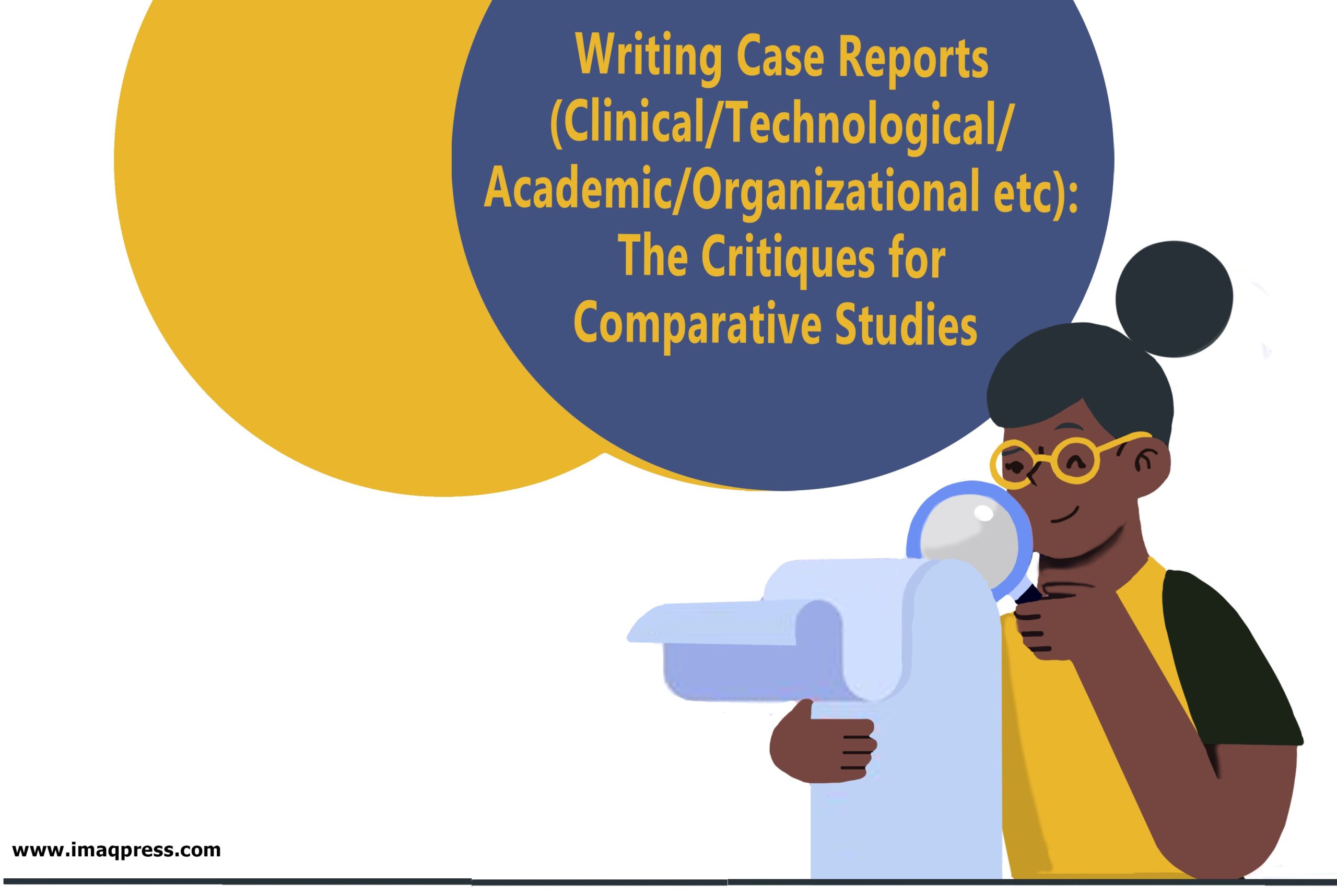
Writing Case Reports (Clinical/Technological/Academic/Organizational etc): The Critiques for Comparative Studies
- Post by: Dr. Muhammad Irfan-maqsood
- August 28, 2021
- Comments off
Case reports are critical analysis of facts on a specific topic featuring a distinguished behavior, achievement, development or innovation related to a disease, academic institute, technological group or an organization, respectively. These reports could be Clinical Case Reports, Technological Case Reports, Institutional or organizational case reports.
Eery disease, every technology, every institute or organization is full of cases needed to be studied, analyzed and reported to assist the global community getting their answers and can be published in related journals for greater audience.
Case reports are well known part of academic writings because these reports describe extra-ordinary or a distinct incidence happened in a patient’s behavior, institutional achievement, technological development or a case report on a cutting edge innovation in an organization.
Currently, the well-known case reports are clinical case reports whereas other types of case reports are technological (advancement/distinction) case reports, academic or organizational specific case reports describing innovations or distinct achievements.
Main Components of a Case Report:
A Case Report is a critical analysis and collection of facts on a specific topic featuring a distinguished behavior, achievement, development or innovation related to a disease, academic institute, technological group or an organization, respectively.
A Case Report should have following important components…
- Introduction of Topic & Problem
- What is Distinguished in Report?
- Social Impact of the Distinction
- Inter/multi-disciplinary Relationship
- Critical Conclusion & Perspective
Clinical Case Reports
Clinical Case Reports / Case Reports in Medicine are comprehensive explanation of symptoms, treatment status, disease follow up or surgical situation of a patient. These are the most common types of case reports published by scholarly journals as almost every clinical researcher is publishing one or two case reports/year.
A non-clinical researcher can also visit the clinics or hospitals and with coordination of authorities can look for extra-ordinary behaviour and can write a clinical case report using inter-disciplinary quantitative research approaches.
Technological Case Reports
Technology boom is a current trend all over the world and every day we are witnessing the awesome technologies coming in the market. Some technologies are market attractive whereas some technologies are not being welcomed by the people, so researchers can write case reports on technological boom explaining the social, economic and political factors in the success or failure of technologies.
Every technology officer can also write technology case reports explaining the distinction of their technologies with others.
Institutional or Organizational Case Reports
Every progressive institute or organization including universities, colleges, research groups, NGOs, private corporations or national/international committees perform several innovative activities throughout year and achieve distinctions among others.
A member of these institutes or organizations can write an institutional or organization case report or an outsider can write a comparative case report describing the impact of specific organizational model on their achievements and distinctions.
Conclusion
Writing a case report is rare among non-clinical researchers because institutes or organizations have not defined these categories for their incentive programs.
Although top scientific non-medical journals have not included these types of publications in their scope but there are many inter-disciplinary and general science journals accepting creative stories focusing a specific issue.
A case report could be highly productive and impactful scientific publication criticizing the global trend of ongoing research and helpful to determine the right direction.
